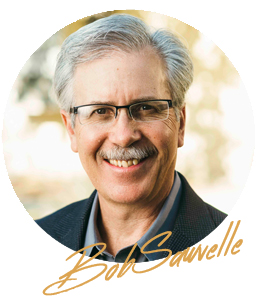
Last week, we examined in detail how the Lord, in His covenant with us, has given us the power to create wealth. A key concern with money and the acquiring of wealth is the attitude of the heart – that affects how we manage what we are entrusted with. We are commanded to love God first, then others as we love ourselves – our love for God should never compete with our love for money.
This week I’ll discuss the seven Kingdom Stewardship Principles that help create wealth. God is not against wealth or prosperity – indeed, He is glorified when we prosper! He promises to give us everything we need to accomplish our destiny. Jesus came that we might be restored in every way to the Father, including our finances.
7 Kingdom Stewardship Principles
The earth is the Lord’s and everything in it. The world and all its people belong to Him.” Psalm 24:1
God is the rightful owner of everything – in reality, we own nothing. Incredibly, God has entrusted us to be stewards of His resources in this life. Stewardship is defined as: the management of resources that belong to another. In other words, a steward is someone who takes care of, watches over, and handles or directs what is not theirs but belongs to another. The steward manages resources in a way to ensure the owner’s interest is protected always. Properly managed resources should be improved or greater in value upon return of the owner.
God is actually using the physical things of this earth and the world system to test, train, and prepare us for our eternal purpose of ruling and reigning in His Kingdom. So does God own it all, or do you? If God owns it all, then God has the responsibility of providing for you. Stewardship is based on the principle of God’s abundance and more than enough – we distribute His resources!
In Matthew 25:14-30, we read important principles of stewardship in the Parable of the Talents.
For the kingdom of heaven is like a man traveling to a far country, who called his own servants and delivered his goods to them. And to one he gave five talents, to another two, and to another one, to each according to his own ability; and immediately he went on a journey. Then he who had received the five talents went and traded with them, and made another five talents. And likewise he who had received two gained two more also. But he who had received one went and dug in the ground, and hid his lord’s money. After a long time the lord of those servants came and settled accounts with them.
“So he who had received five talents came and brought five other talents, saying, ‘Lord, you delivered to me five talents; look, I have gained five more talents besides them.’ His lord said to him, ‘Well done, good and faithful servant; you were faithful over a few things, I will make you ruler over many things. Enter into the joy of your lord.’ He also who had received two talents came and said, ‘Lord, you delivered to me two talents; look, I have gained two more talents besides them.’ His lord said to him, ‘Well done, good and faithful servant; you have been faithful over a few things, I will make you ruler over many things. Enter into the joy of your lord.’
“Then he who had received the one talent came and said, ‘Lord, I knew you to be a hard man, reaping where you have not sown, and gathering where you have not scattered seed. And I was afraid, and went and hid your talent in the ground. Look, there you have what is yours.’
“But his lord answered and said to him, ‘You wicked and lazy servant, you knew that I reap where I have not sown, and gather where I have not scattered seed. So you ought to have deposited my money with the bankers, and at my coming I would have received back my own with interest. Therefore take the talent from him, and give it to him who has ten talents.
‘For to everyone who has, more will be given, and he will have abundance; but from him who does not have, even what he has will be taken away. And cast the unprofitable servant into the outer darkness. There will be weeping and gnashing of teeth.’
Use it or Lose it
Jesus mentions the principle of using your gift, talents, and resources or losing them. Stewardship is not being inactive or just holding on to what you have. We should not be afraid of losing what God has given us since God’s supply is unlimited. How could it ever run out?
The key is to learn to invest these gifts, talents, and resources in the right way and begin to see them multiplied. How? Primarily through hard work and earning a living. Learning how to give a portion of what you earn, learning how to save some of your resources, and learning how to spend what you have properly.
Multiplication
Notice in the parable, the productive servants (stewards) increase what they have received. This is the spiritual principle of multiplication. If you are faithful, you will be rewarded, increase is expected. If you give, it shall be given to you. God wants to bless the work of your hands!
And let the beauty and delightfulness and favor of the Lord our God be upon us; confirm and establish the work of our hands—yes, the work of our hands, confirm and establish it. Psalm 90:17 AMPC
The return is not just based on addition, but upon the spiritual principle of multiplication: more than enough, pressed down, shaken together, and running over!
Possessing All Things
In order to possess all things, we must start out by owning nothing. No, don’t go out and sell everything you have! I’m not talking about legal ownership, but about the principle of things owning you. Jesus did not own anything, but he possessed all things. He recognized that the Father is the Owner of all things.
We may have our name on the mortgage or deed to the land, but if we know in our hearts we are only managers of God’s assets, then our whole thinking process changes!
The financial decisions we make change as we assume a management (stewardship) role versus an ownership role. Recognize that God is the rightful owner, accept from Him a stewardship authority and anointing, and then you will begin to see things around you change!
Seed Time and Harvest
The principle of seed time and harvest is that if you plant a seed (give of what you have), then in due season, in the timing of God, there will be a harvest of that seed, multiplied. (See Gen. 8:22.)
This principle holds true in both the spiritual and physical realms, positively and negatively. Sow, and you shall reap, give and it shall be given to you.
Contentment
Paul learned how to be “content in all things – having little or much.” (Phil. 4:11-12 CEB.) He did not let circumstances change his attitude toward God or His Word. Paul was in love with Jesus, and he knew he was in God’s hands doing God’s will.
If you’re malcontent where you are and with your circumstances, then you will hinder God’s grace and the Kingdom principles of supply. The essence of biblical prosperity is your joy in the Lord – your love for Jesus – He is your source! Prosperity is found through intimacy with God.
Faithful in What is Another’s
This is an area where the Lord tests and tries our hearts. He is looking to see if we are ready to receive our own key to the heavenly storehouse of both physical resources and spiritual anointing and gifts.
If you can’t serve another faithfully, then how can you serve God? If you can’t manage the resources of another and cause them to multiply and be fruitful, then why should God entrust greater riches to you? (Luke 16:11, CEB.) God is not out to ruin us by giving us more than we can be entrusted with.
Preparation Brings Provision
God is the God of the supernatural. We all want God to move miraculously. However, God moves supernaturally with purpose – He will not violate His principles to demonstrate His power. One of these principles is that there must be preparation before provision.
God is not going to supernaturally give you millions if you are not faithful with the time, treasure, and talents He has already given you. God is not a state lottery! He gives power and ability to earn a living and create wealth. He prepares us for more through process.
In Conclusion
Let’s recap the steps and principles for Kingdom Stewardship:
- Recognize that everything belongs to God, we are His managers.
- Use the gifts, talents, and resources God has given you.
- Develop a giving plan, and give! Practice random acts of generosity. (Prov. 11:25 NLT) Give something to someone in need, buy dinner for someone and leave a big tip!
- Save a portion of what you earn. Give God 10%, save 10% and live on 80%. Have available 3-6 months of emergency funds.
- Learn to spend wisely. Budget, pay bills on time, and be responsible.
- Believe it’s God’s will for you to prosper! Walk faithfully with God, be a good steward, be generous, and have a heart for the Great Commission.
You have the mind of Christ, the anointing of the Holy Spirit to guide and direct you. There is an abundance of creativity in God’s realm that can empower you beyond your natural abilities. He has truly given you “power to get wealth!”

For a more in-depth look at Part 2, watch “Power to Get Wealth Part 2” from Passion Church.






